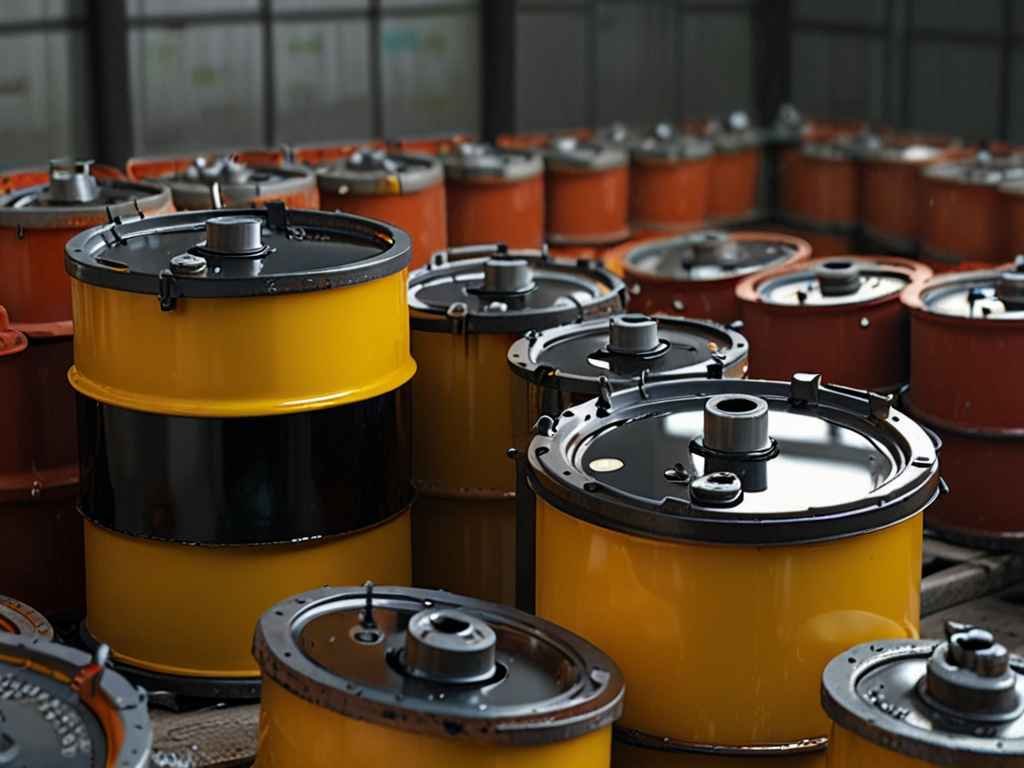Hydraulic oil plays a crucial role in various industries by ensuring the smooth and efficient operation of hydraulic systems. It is specifically designed to transfer power within hydraulic machinery while providing lubrication, cooling, and anti-corrosion protection. From heavy-duty construction equipment to delicate aerospace mechanisms, hydraulic oil uses extend across multiple sectors, making it an essential fluid for modern industrial applications.
In this comprehensive guide, we will explore hydraulic oil uses, its applications in different industries, the benefits of using high-quality hydraulic oil, and frequently asked questions to help you understand its importance.
What is Hydraulic Oil?
Hydraulic oil is a non-compressible fluid that is specially formulated to transmit power within hydraulic systems. It is made from mineral oils or synthetic fluids and is often blended with additives to enhance its performance. These additives help improve lubrication, prevent oxidation, and protect components from wear and tear.
Hydraulic Oil Uses in Various Industries
1. Industrial Machinery
One of the primary hydraulic oil uses is in industrial machinery, where it powers hydraulic presses, CNC machines, and robotic arms. These machines rely on hydraulic oil for:
- Power transmission in hydraulic pumps and cylinders.
- Lubrication of moving parts to reduce friction.
- Cooling systems by dissipating excess heat.
- Protecting metal components from corrosion and wear.
Without hydraulic oil, industrial operations would suffer from inefficiencies, increased wear, and frequent machinery breakdowns.
Explore: Is hydraulic oil combustible ?

2. Construction and Heavy Equipment
Hydraulic oil is indispensable in construction machinery such as excavators, bulldozers, cranes, and loaders. These machines use hydraulic systems to perform heavy-duty tasks such as lifting, digging, and moving materials. Hydraulic oil uses in construction include:
- Enabling smooth and controlled operation of hydraulic arms.
- Providing optimal pressure for steering and braking systems.
- Reducing wear and extending the lifespan of components.
Given the harsh working conditions in construction sites, high-quality hydraulic oil is essential for preventing system failures.

3. Automotive and Transportation
Hydraulic oil is commonly used in vehicle braking systems, power steering mechanisms, and automatic transmissions. Some of the key hydraulic oil uses in automobiles include:
- Power transmission in brake and clutch systems for smooth performance.
- Assisting in power steering systems to reduce driver effort.
- Enhancing shock absorption in hydraulic suspensions.
Hydraulic oil in vehicles is formulated with anti-foaming and anti-wear properties to ensure long-term reliability.
4. Aviation and Aerospace
Aircraft require high-performance hydraulic systems for landing gear, wing flaps, and braking systems. Hydraulic oil uses in aviation include:
- Ensuring precision in aircraft control surfaces.
- Operating landing gear smoothly under high pressure.
- Withstanding extreme temperature variations.
Aviation-grade hydraulic fluids are designed to resist oxidation and maintain stability in high-altitude conditions.

5. Agriculture and Farming Equipment
Hydraulic oil is a key component in tractors, harvesters, and irrigation systems. The hydraulic oil uses in agriculture include:
- Powering hydraulic lifting arms for plowing and harvesting.
- Enabling the movement of seeding and spraying equipment.
- Reducing machinery downtime with enhanced lubrication.
Given the dusty and muddy conditions in farming, hydraulic oils used in agriculture must have excellent filtration and anti-wear properties.
6. Marine and Offshore Applications
Ships, offshore drilling rigs, and underwater equipment rely on hydraulic oil for their operational efficiency. Hydraulic oil uses in the marine industry include:
- Operating ship steering systems and stabilizers.
- Powering cranes and deck machinery.
- Protecting hydraulic components from saltwater corrosion.
Marine hydraulic oils are formulated to withstand extreme moisture conditions and prevent oxidation.

7. Power Generation and Renewable Energy
Hydraulic oil plays a significant role in power plants, wind turbines, and hydroelectric stations. Hydraulic oil uses in energy production include:
- Controlling turbine blades in wind energy systems.
- Adjusting hydroelectric dam gates for optimal water flow.
- Enhancing the efficiency of solar tracking systems.
Reliable hydraulic fluids in renewable energy systems improve performance and extend the operational life of equipment.

8. Manufacturing and Processing Plants
Hydraulic systems in factories and production plants rely on hydraulic oil for smooth operation. Hydraulic oil uses in manufacturing include:
- Enabling precise movements in conveyor systems.
- Powering hydraulic presses for metal forming and molding.
- Supporting robotic arms in automated production lines.
High-quality hydraulic oil reduces maintenance costs and prevents equipment failures in high-speed industrial environments.
Benefits of Hydraulic Oil
Using the right hydraulic oil provides numerous benefits, including:
✅ Lubrication: Reduces friction and extends component lifespan.
✅ Heat Dissipation: Transfers heat away from hydraulic systems to prevent overheating.
✅ Corrosion Protection: Prevents rust and oxidation in metal components.
✅ Sealing Properties: Helps maintain pressure within hydraulic cylinders.
✅ Energy Efficiency: Enhances performance and reduces power consumption.
✅ Wear Resistance: Protects pumps, valves, and hoses from damage.
Choosing the right hydraulic oil based on viscosity, temperature resistance, and application requirements is essential for maximizing efficiency.
FAQs
1. Can I use any type of oil in a hydraulic system?
No, hydraulic systems require specific hydraulic oils with the right viscosity and additive properties. Using the wrong oil can lead to poor performance and system damage.
2. How often should hydraulic oil be changed?
The frequency of changing hydraulic oil depends on the application, working conditions, and manufacturer recommendations. Generally, it should be replaced every 1,000 to 2,000 operating hours.
3. What happens if hydraulic oil is contaminated?
Contaminated hydraulic oil can lead to reduced efficiency, increased wear, and potential system failure. It is essential to use clean oil and regularly inspect filters.
4. Can hydraulic oil be used in cold temperatures?
Yes, but low-temperature hydraulic oils are specifically designed to prevent thickening and maintain fluidity in cold environments.
5. What is the difference between mineral-based and synthetic hydraulic oil?
Mineral-based hydraulic oil is derived from crude oil, while synthetic hydraulic oil is engineered for superior performance, higher temperature resistance, and longer service life.
6. How do I choose the right hydraulic oil for my equipment?
Consider factors such as viscosity grade, temperature range, application requirements, and manufacturer recommendations to select the best hydraulic oil for your system.
Conclusion
Hydraulic oil is a vital fluid that ensures the efficiency and longevity of hydraulic systems across various industries. From industrial machinery to aviation, construction, and renewable energy, hydraulic oil uses are extensive and essential for smooth operations. Choosing the right hydraulic oil with the appropriate viscosity, additives, and temperature resistance can significantly improve equipment performance and reduce maintenance costs.
By understanding hydraulic oil uses, businesses and equipment operators can optimize their hydraulic systems for maximum efficiency, reliability, and longevity.

